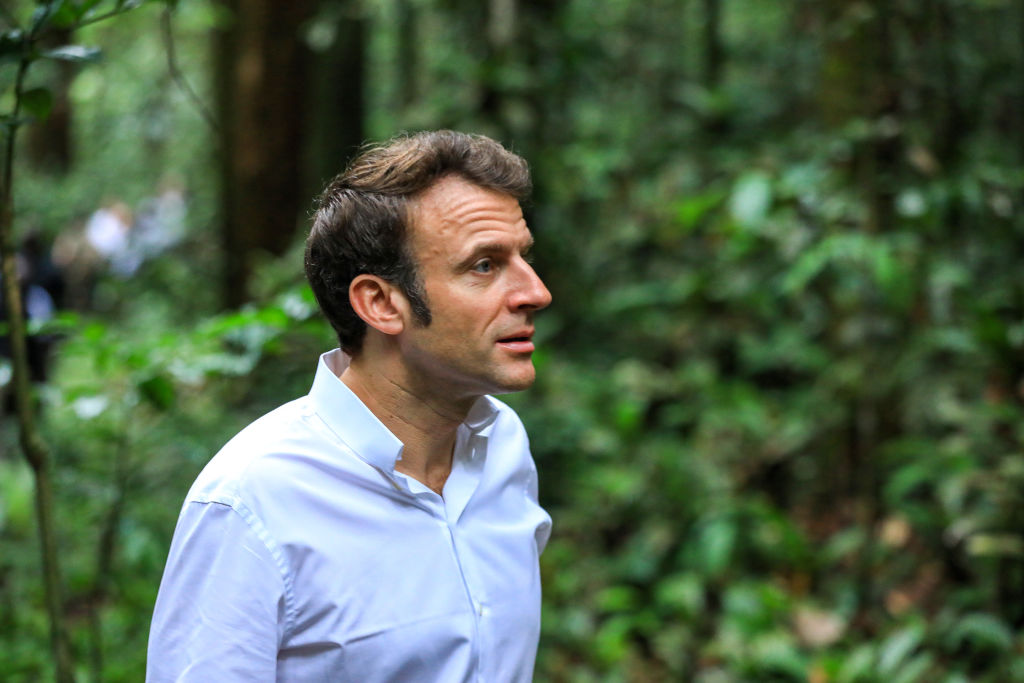On 2 March in Gabon, West Africa, President Macron declared that ‘the days of France-Afrique are over’. Since the early nineteenth century the African continent has emblazoned France’s aspiration to international power status.
Like any empire it provided natural resources. It also provided manpower. Unlike other imperial powers with surplus domestic populations to deploy, France’s demography was stagnant at 40 million from the 1840s until the 1940s. Africa provided troops for her armies (tirailleurs sénégalais) to compete with Germany’s demography and growing forces. Even after the troubled decolonisation in the 1960s Africa continued to provide cheap labour to a thriving French domestic industry.
France’s Francophone African empire – combined with its south-east Asian colonies – allowed her proudly to proclaim her position as the world’s second largest colonial power. Unlike other imperial powers France deployed her universalist values to colonial conquests as part of a ‘civilising mission’. As part of this view, France, having attained a higher level of civilisation, felt duty-bound to share it with other less fortunate populations.
But what set France apart from say Britain was its philosophy that other cultures be ‘assimilated’ into French culture. Like their French brethren, colonial African school children too recited: ‘Nos ancêtres les Gaulois’ (our ancestors the Gauls). To this day the French depict British colonialism as egotistical, pecuniary and devoid of higher values. British colonialism aspired to eventual ‘self-government’ for its imperial peoples making extraction from empire and decolonisation at least justifiable. ‘Assimilation’, however, logically meant a much longer, even perpetual, process. Herein lay France’s decolonisation predicament. Generations within France, on the left and right, were hostile to breaking the logical thread they had absorbed since school of the altruism inherent in the civilising mission. Hence the near civil war over Algerian independence. And today trapped by that assimilationist logic France will find withdrawal from her neo-colonial presence in West Africa very difficult.
At its peak France’s 5,500-strong Barkhane anti-insurgent operation began in 2014 in five former French colonies in the Sahel to combat the spread of Islamic terrorist groups. Ostensibly a failure, President Macron ended the operation in November 2022. France’s involvement was initially welcomed and invited by local leaders, but local populations and subsequently the leaders of Mali and Burkina Faso demanded French forces withdraw – with Burkina Faso recently going further and terminating its 1961 defence agreement with Paris. Piling on the humiliation, these states have switched allegiance to the Moscow-backed Wagner mercenary group whose expansion across Africa has been unrelenting.
With some 50 French military personnel killed and little success to show in pushing back Islamic jihad, France felt abandoned by her EU partners, notably Germany, who refused any serious front-line commitment, despite Paris claiming to be protecting the EU’s southern flank. Ironically it was Britain who supplied much of the logistics and the heavy lift helicopter front-line power, despite Macron’s stance on Brexit. Not only has the bell tolled for France’s African expedition, it has forced Macron to rethink France’s entire African strategy.
At present over 3,000 French troops serve in Senegal, Ivory Coast, Gabon and Djibouti, with another 3,000 in the Sahel region, including Niger and Chad. Costs are partly compensated for by arms and commercial contracts. But hostility to France on the continent is at its strongest since independence. Younger generations regard France’s presence with increasing scepticism for having shored up unsavoury regimes, notably by dint of those defence agreements. This is why Macron has directly appealed to African youth for a ‘mutual and responsible relationship’ and made a pledge to break with post-colonial policies. His African trip was carefully badged as having an ecological objective – with Macron attending an African wildlife and forest sustainability conference. But with typical Macronian boorishness he let slip that he was accompanied on his trip to oil-rich Angola by the head of Total oil.
However much President Macron might feign France’s extraction from Africa in exchange for ‘partnership’ with its former colonial subjects, the transition is unlikely to be anything other than superficial. Too much is at stake. France’s hold over the region is economic and financial through the shared currency of the French managed CFA franc, the presence of large French commercial firms, the training of local civil service elites at the Ecole Nationale d’Administration in Paris, the integration of French-speaking Africa in the international cultural Francophonie organisation. Then there is France as a western bulwark against the growing presence of China and Russia on the continent. Whatever President Macron’s gesture politics there is little chance of France abandoning its neo-colonial presence. At best France-Afrique may become Afrique-France.






Comments